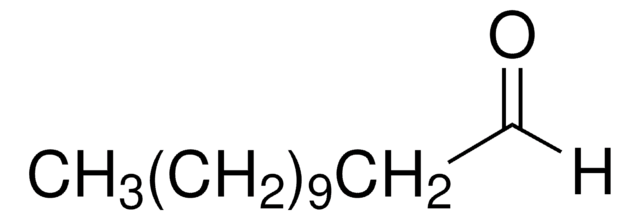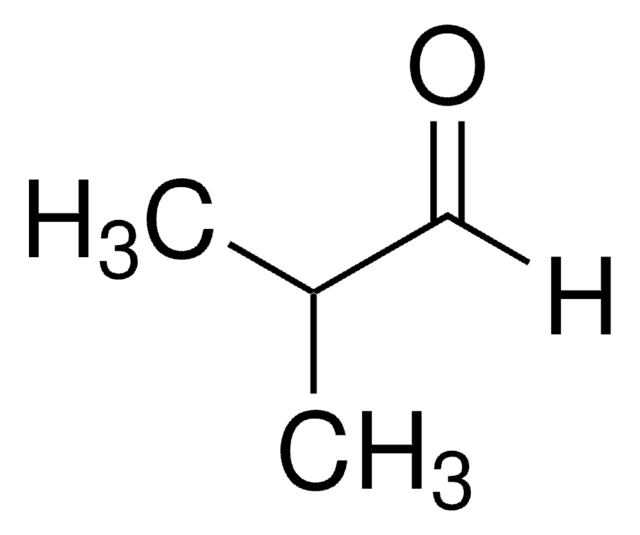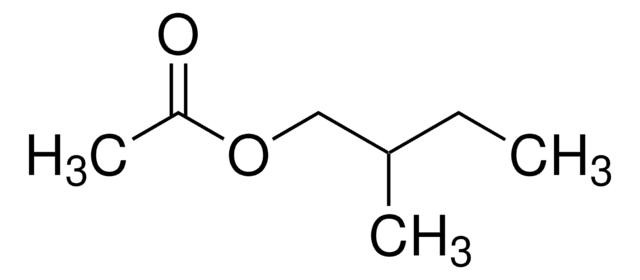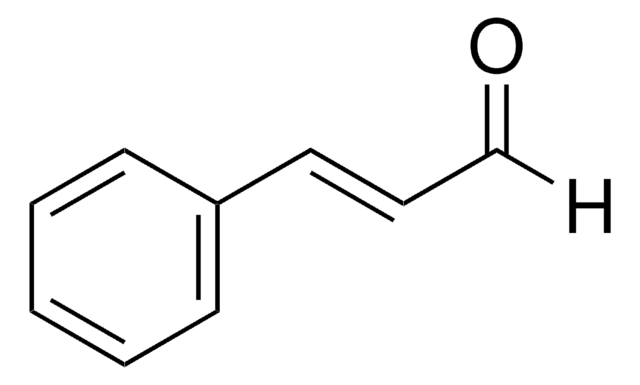About This Item
Fragrance grade
Halal
Kosher
natural
Recommended Products
grade
FG
Fragrance grade
Halal
Kosher
natural
Quality Level
Agency
follows IFRA guidelines
reg. compliance
EU Regulation 1223/2009
EU Regulation 1334/2008 & 178/2002
FDA 21 CFR 172.515
vapor density
2.5 (vs air)
vapor pressure
90 mmHg ( 20 °C)
Assay
95%
autoignition temp.
390 °F
expl. lim.
12.5 %
refractive index
n20/D 1.380 (lit.)
bp
75 °C (lit.)
mp
−96 °C (lit.)
density
0.8 g/mL at 25 °C (lit.)
application(s)
flavors and fragrances
Documentation
see Safety & Documentation for available documents
food allergen
no known allergens
fragrance allergen
no known allergens
Organoleptic
cocoa; green; musty; pungent
storage temp.
2-8°C
SMILES string
[H]C(=O)CCC
InChI
1S/C4H8O/c1-2-3-4-5/h4H,2-3H2,1H3
InChI key
ZTQSAGDEMFDKMZ-UHFFFAOYSA-N
Looking for similar products? Visit Product Comparison Guide
Other Notes
Signal Word
Danger
Hazard Statements
Precautionary Statements
Hazard Classifications
Eye Irrit. 2 - Flam. Liq. 2
Storage Class Code
3 - Flammable liquids
WGK
WGK 1
Flash Point(F)
<50.0 °F - Pensky-Martens closed cup
Flash Point(C)
< 10 °C - Pensky-Martens closed cup
Personal Protective Equipment
Choose from one of the most recent versions:
Already Own This Product?
Find documentation for the products that you have recently purchased in the Document Library.
Customers Also Viewed
Our team of scientists has experience in all areas of research including Life Science, Material Science, Chemical Synthesis, Chromatography, Analytical and many others.
Contact Technical Service












